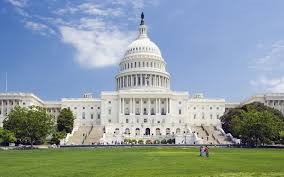
ATLANTA – A diverse quartet of leaders representing cities and counties, schools, health-care workers and businesses across Georgia are calling on Congress to include local governments in a new economic stimulus package.
Legislation the U.S. House of Representatives passed in May includes $1 trillion for state and local governments suffering a huge loss in tax revenues resulting from the pandemic’s economic impact.
In a media call Friday, a Georgia mayor, school superintendent, health-care executive and business owner urged the U.S. Senate to take up the Health and Economic Recovery Omnibus Emergency Solutions Act (HEROES) Act when Congress reconvenes Monday following the July Fourth holiday recess.
“Union City has been hit and hit hard by the public health and economic impact of the coronavirus pandemic,” said Vince Williams, mayor of the Fulton County city of 20,000 residents.
Williams, who also serves as incoming president of the Georgia Municipal Association, said the first economic stimulus package Congress passed in March included aid for 36 U.S. cities with populations of 500,000 or greater, including Atlanta. But smaller cities were left out, he said.
“What do we do about small-town America?” he asked. “We need to provide public services to our residents.”
Allen Fort, superintendent of the Taliaferro County School District in Crawfordville, said schools need federal aid if they are to reopen classrooms safely.
Fort said getting back to in-person instruction is critical in rural school districts that lack adequate internet coverage. He said 60% of Taliaferro County lacks internet connectivity.
“If [students] are not at school, they’re not receiving the education they need,” he said. “But bringing them to school in this situation is not the answer.”
Zach Robinson, senior manager at the Emory Heart and Vascular Center, said more public funding is needed to help hospitals that are losing money because they have had to cancel elective surgery in order to treat an influx of coronavirus patients
He said budgetary red ink is forcing hospitals to furlough and lay off employees at a time they’re most needed to serve on the front lines of the fight against COVID-19.
“We must build up our public infrastructure,” Robinson said. “Healthy employees make a healthy economy.”
While stimulus money for local governments doesn’t go to the private sector, more federal aid could benefit private businesses indirectly, said Chris Hart, who owns a home décor and gift store in Thomasville with his wife.
He said businesses can’t function in communities ravaged by coronavirus.
“If we don’t beat the virus, we simply can’t open the economy safely,” Hart said. “We’re going to need bold action from Congress to ensure our businesses can survive.”
